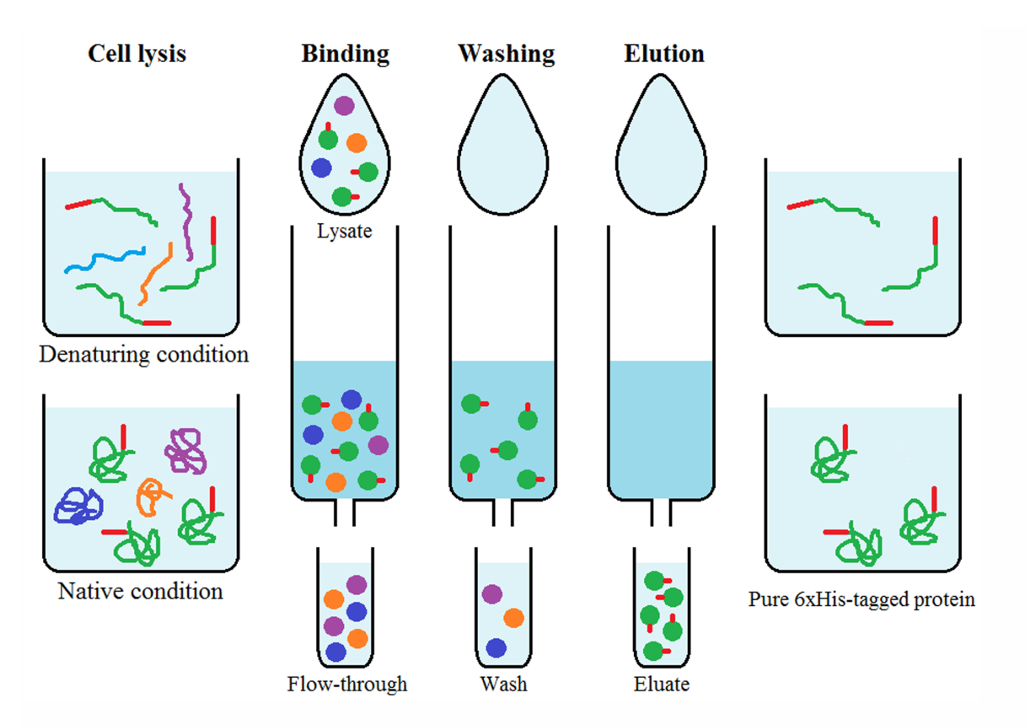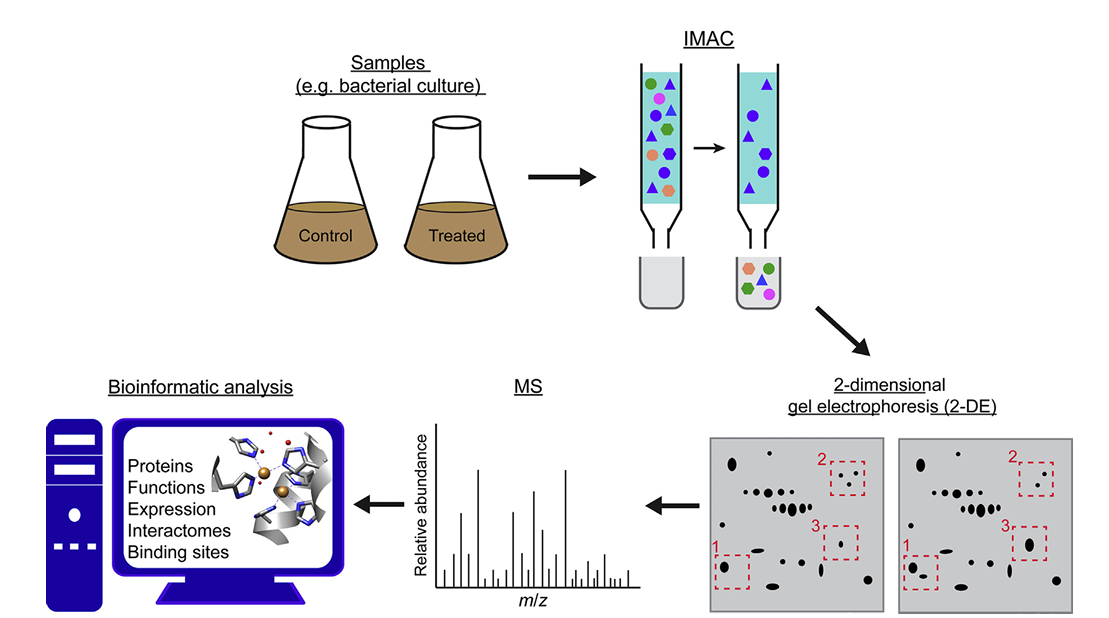IMAC-Based Modified Peptide Enrichment Service
Immobilized Metal Affinity Chromatography (IMAC) is one of the most powerful and selective strategies for enriching phosphorylated and metal-chelating peptides prior to mass spectrometry-based proteomics. By exploiting the specific coordination between transition metal ions and phosphate or carboxyl groups, IMAC enables efficient isolation of low-abundance modified peptides from complex biological mixtures.
MtoZ Biolabs provides a comprehensive IMAC-Based Modified Peptide Enrichment Service designed to facilitate the in-depth exploration of post-translational modifications (PTMs). Our service supports both targeted and large-scale phosphoproteomic and metal-affinity proteomic studies. Using optimized IMAC resins combined with high-resolution LC-MS/MS platforms, we ensure sensitive, reproducible, and high-throughput identification of modified peptides. Complementary techniques, such as TiO2 enrichment, Fe3+-IMAC, and sequential elution chromatography, are integrated when required to enhance coverage and selectivity across various sample types.
Technical Principles
IMAC is based on the principle that metal ions, such as Fe3+, Ga3+, and Ti4+, Zr4+, immobilized on a chelating matrix (e.g., nitrilotriacetic acid or iminodiacetic acid), can form stable coordination bonds with electron-donating groups on modified peptides, such as phosphate moieties. This metal-ligand affinity provides a robust means of isolating phosphorylated or carboxyl-rich peptides while minimizing non-specific interactions. By adjusting metal ion types, buffer compositions, and pH conditions, IMAC can be tailored to capture distinct classes of PTMs, including phosphorylation, sulfation, and certain acetylated species. IMAC has become a cornerstone of phosphoproteomics, enabling researchers to map thousands of phosphorylation sites with high confidence and to decipher the signaling dynamics underlying processes such as cell growth, apoptosis, differentiation, and disease progression. The ability to enrich substoichiometric peptides greatly improves the sensitivity and depth of LC-MS/MS-based analyses, contributing to a more complete understanding of the proteome's regulatory complexity.

Karakus, C. et al. J Chromatogr B Analyt Technol Biomed Life Sci. 2016.
Figure 1. An Illustration of IMAC for Protein Purification Under Native or Denaturing Conditions
Analysis Workflow

Chang, Y.-Y. et al. 2017.
Figure 2. Proteomic Analysis of Metal-Binding Proteins using Immobilized Metal Affinity Chromatography (IMAC)
Sample Submission Suggestions
1. Sample Types: Cell lysates, tissue homogenates, serum, plasma, or purified proteins.
2. Recommended Quantity: ≥100 µg total protein or equivalent peptide mixture.
3. Preservation: Freeze-dry or store at –80°C to avoid degradation.
*Notes: For unusual sample types or low-input experiments, please contact MtoZ Biolabs for customized preparation guidance.
Service Advantages
✅ High Chemical Stability: IMAC resins offer exceptional robustness and compatibility with diverse buffers, detergents, and reducing conditions.
✅ Cost-Effective and Efficient: Provides a reliable and economical approach for enriching phosphoproteins and phosphopeptides.
✅ High Sensitivity: Optimized workflows ensure accurate detection even from limited or low-abundance samples.
✅ Customizable Strategies: Flexible enrichment designs tailored to specific experimental goals and modification types.
✅ Professional Expertise: A skilled team with extensive experience in PTM enrichment guarantees precise execution and reliable results.
Applications
1. Phosphoproteomics Research
IMAC is widely applied for large-scale phosphoproteome profiling, enabling precise mapping of phosphorylation sites to uncover signaling pathways and post-translational regulation mechanisms.
2. Signal Transduction Studies
Facilitates dynamic analysis of phosphorylation-dependent signaling networks involved in cell growth, apoptosis, and differentiation.
3. Drug Target Identification and Validation
Supports kinase inhibitor evaluation and discovery of phosphorylation-mediated drug targets in preclinical and translational research.
4. Disease Mechanism Exploration
Applied to study aberrant phosphorylation patterns in cancer, neurodegenerative disorders, metabolic diseases, and inflammatory responses.
5. Biomarker Discovery
Helps identify phosphorylation-based biomarkers for disease diagnosis, prognosis, and therapeutic response assessment.
Deliverables
1. Comprehensive Experimental Details
2. Materials, Instruments, and Methods
3. Total Ion Chromatogram & Quality Control Assessment (project-dependent)
4. Data Analysis, Preprocessing, and Estimation (project-dependent)
5. Bioinformatics Analysis
6. Raw Data Files
Through state-of-the-art analytical platforms, optimized workflows, and expert scientific support, MtoZ Biolabs helps transform peptide-level information into meaningful biological insights that advance signaling research, biomarker discovery, and therapeutic innovation. Free project evaluation, welcome to learn more details.








